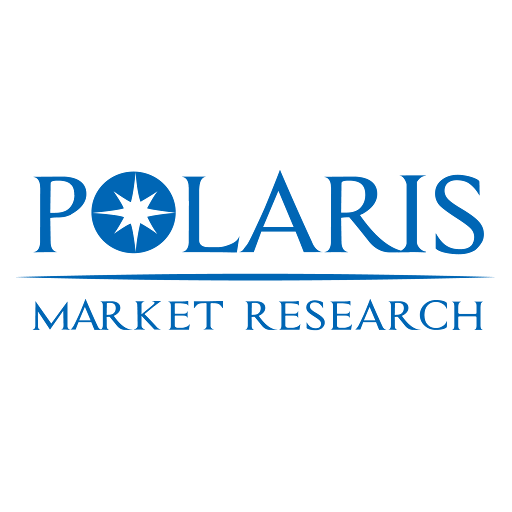Global Veterinary API Manufacturing Market Trends Shaping the Animal Healthcare Industry

The global veterinary active pharmaceutical ingredients (API) manufacturing market, valued at USD 8.96 billion in 2024, is projected to grow at a compound annual growth rate (CAGR) of 6.68% from 2025 to 2034, driven by rising demand for animal health products, increasing livestock intensification, and growing pet ownership in both developed and emerging economies. Veterinary APIs—bioactive compounds used in the formulation of vaccines, antibiotics, antiparasitics, and anti-inflammatory drugs—are essential for disease prevention, treatment, and productivity enhancement in companion animals, livestock, and aquaculture. This growth is shaped by pronounced regional disparities in agricultural practices, regulatory frameworks, and animal health infrastructure. North America, led by the United States, dominates the market, accounting for over 30% of global revenue. The U.S. leadership is anchored in a highly regulated animal health ecosystem, with oversight from the Food and Drug Administration’s Center for Veterinary Medicine (FDA-CVM) and the USDA, which enforce strict quality, safety, and efficacy standards for veterinary drugs. The rise of premium pet care, increasing veterinary visits, and the adoption of prescription medications for chronic conditions in dogs and cats have accelerated demand for high-purity, GMP-compliant APIs.
In contrast, Europe’s veterinary API market is characterized by stringent environmental and animal welfare regulations under the EU Veterinary Medicinal Products Regulation (VMPR), which mandates full traceability, residue monitoring, and antimicrobial stewardship. Countries such as Germany, France, and the Nordic nations enforce rigorous approval processes for APIs used in food-producing animals, particularly restricting the use of medically important antibiotics to curb antimicrobial resistance (AMR). Regional manufacturing trends indicate a strong presence of high-precision chemical processors and contract development and manufacturing organizations (CDMOs), particularly in Germany and Switzerland, where engineering excellence supports innovation in controlled-release formulations and low-impact synthesis. However, the fragmented nature of agricultural policy across EU member states—especially in Eastern Europe—creates variability in adoption rates and procurement practices. Cross-border supply chains for raw materials, intermediates, and finished APIs are well-integrated within the EU single market, though Brexit has introduced customs delays and re-certification requirements for UK-based distributors. Additionally, the European Green Deal and Farm to Fork Strategy are influencing demand for sustainable, low-residue APIs that align with organic farming and circular economy principles.
Asia Pacific is the fastest-growing region, fueled by rising protein demand, expanding livestock and aquaculture production, and government-led initiatives to modernize animal health systems in China, India, and Southeast Asia. China’s Ministry of Agriculture and Rural Affairs has implemented stricter regulations on antibiotic use in livestock, creating demand for alternative therapeutics and high-quality APIs. India’s National Action Plan on Antimicrobial Resistance (NAP-AMR) and the Animal Husbandry Infrastructure Development Fund (AHIDF) are accelerating investment in domestic API production and vaccine development. Regional manufacturing trends show a shift toward cost-optimized, mid-tier APIs tailored to smallholder farmers, alongside high-purity, export-grade products for global pharmaceutical companies. Market penetration strategies by multinational players often involve partnerships with local agro-veterinary distributors, contract manufacturers, and extension services to build trust and ensure regulatory compliance.
Geopolitical and trade-specific factors, including U.S.-China trade tensions and export controls on dual-use chemical technologies, are influencing sourcing decisions and favoring regionalization of production. Additionally, concerns over counterfeit APIs, supply chain transparency, and AMR are prompting manufacturers to adopt blockchain traceability, third-party audits, and ISO 13485-certified facilities to ensure product integrity. As the global demand for safe, effective, and sustainable animal health solutions intensifies, the ability to deliver compliant, high-performance veterinary APIs across diverse regulatory and operational environments will be a key determinant of competitive success.
Competitive Landscape:
- Zoetis Inc.
- Merck Animal Health (a division of Merck & Co., Inc.)
- Elanco Animal Health Incorporated
- Boehringer Ingelheim Animal Health
- Ceva Santé Animale
- Neogen Corporation
- Fresenius Kabi AG (Veterinary Division)
- Huvepharma EOOD
More Trending Latest Reports By Polaris Market Research:
Air Quality Monitoring Systems Market
Renewable Energy Certificate (REC) Market
Waste Recycling Services Market
- AI
- Vitamins
- Health
- Admin/office jobs
- News
- Art
- Causes
- Crafts
- Dance
- Drinks
- Film
- Fitness
- Food
- Games
- Gardening
- Health
- Home
- Literature
- Music
- Networking
- Other
- Party
- Religion
- Shopping
- Sports
- Theater
- Wellness


